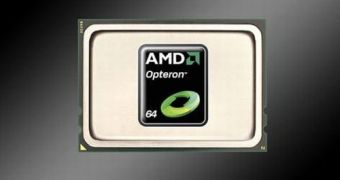After it got its newest CEO, AMD did say it was going to change how it went about things and, sure enough, the company is expanding in certain areas where it was not as active before, specifically that of servers.
In this instance, rather than announcing some new Opteron CPUs or whatnot, the Sunnyvale, California-based company has revealed a new buyout plan.
Basically, it has signed an agreement with SeaMicro, through which it will acquire the latter in its entirety.
Thus, the CPU, GPU and APU maker will get a set of high-bandwidth, energy-efficient microserver technologies and customers.
“Cloud computing has brought a sea change to the data center--dramatically altering the economics of compute by changing the workload and optimal characteristics of a server,” said Andrew Feldman, SeaMicro CEO, who will become general manager of AMD’s newly created Data Center Server Solutions business.
“SeaMicro was founded to dramatically reduce the power consumed by servers, while increasing compute density and bandwidth. By becoming a part of AMD, we will have access to new markets, resources, technology, and scale that will provide us with the opportunity to work tightly with our OEM partners as we fundamentally change the server market.”
AMD will pay SeaMicro $334 million (250.43 million Euro), of which $281 million, or thereabouts, will be cash (212.94 million Euro).
The first Opteron chips integrating SeaMicro features is expected to appear in the second half of the year (2012).
“By acquiring SeaMicro, we are accelerating AMD’s transformation into an agile, disruptive innovator capable of staking a data center leadership position,” said Rory Read, president and CEO, AMD.
“SeaMicro is a pioneer in low-power server technology. The unmatched combination of AMD’s processing capabilities, SeaMicro’s system and fabric technology, and our ambidextrous technology approach uniquely positions AMD with a compelling, differentiated position to attack the fastest growing segment of the server market.”

 14 DAY TRIAL //
14 DAY TRIAL //